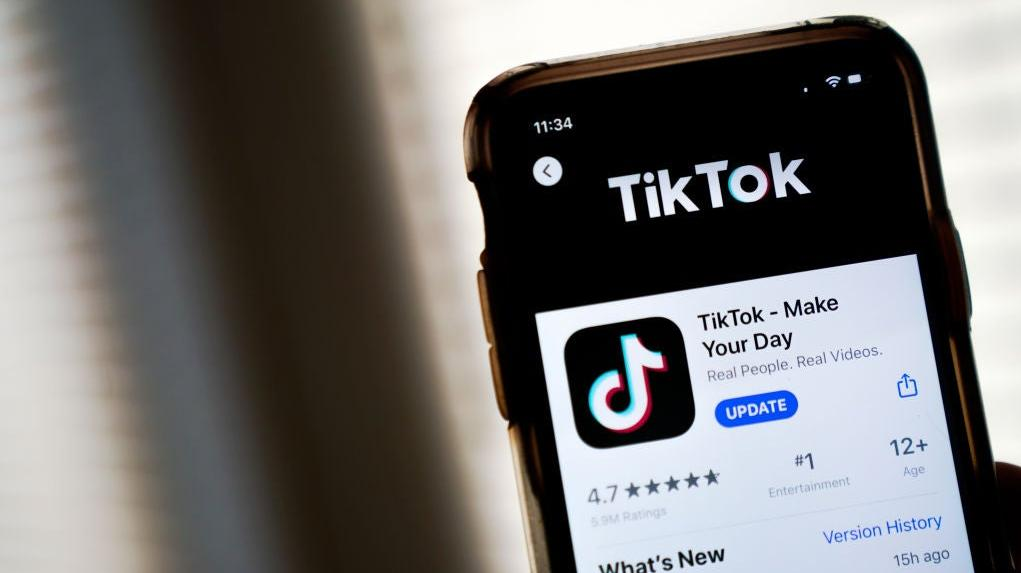TikTok Algorithm Shows Teens Eating Disorder Content Within Minutes
The social media platform is irreparably damaging teenagers' relationship to food.
It surely can't be a coincidence that "TikTok" has almost all the same letters as "toxic." I can feel my brain cells dying whenever I spend more than two minutes on the professional time-wasting app. From hot shirtless gays telling me who to vote for to punk rockers serving up Britney Spears conspiracies, it's a miracle I even have the wherewithal to write this article.
That said, I can only imagine how difficult it must be for today's teens, who make up a quarter of TikTok's total audience. Everyone's teenage years are filled with awkwardness and insecurity, but only Gen Z has had to spend those years carrying an unlimited supply of anxiety-inducing content right in their pockets. Case in point: A new study claims that TikTok's algorithm "starts recommending content tied to eating disorders and self-harm to 13-year-olds within 30 minutes of their joining the platform," The New York Times reports.
The research, conducted by nonprofit Center for Countering Digital Hate, involved setting up various TikTok accounts and posing as 13-year-olds to see what the algorithm served teenagers. Despite the fact that posts promoting "disordered eating" go against TikTok's community guidelines, users uploading such content have found ways to skirt the censors by using coded hashtags like "#EdSheeranDisorder" (which hardly sounds any better). What particularly alarmed the researchers, though, was how quickly the tone of the recommended content shifted.
"Your eye might be caught by a video of an aspirational body in beautiful clothes and very quickly the algorithm realizes you're interested in body image," one researcher told the Times. From there, TikTok began promoting content related to "junkorexia," a form of eating disorder. Just this week, 60 Minutes even featured an interview with a 20-year-old girl who explains that she began looking for workout routines on social media as a teen and was soon led toward disordered eating by algorithmic recommendations.
This is in stark contrast to the Chinese version of TikTok. In China—homeland of TikTok's parent company, ByteDance—children under 14 are limited to only 40 minutes of videos per day, and the content is curated to be educational, per CNN.
On American TikTok, even so-called educational content has to be viewed with healthy skepticism, since anyone can claim to be an authority on anything and, consequently, influence public opinion whether or not they're qualified to do so. In July, for example, a clip went viral in which a "wellness" influencer and self-proclaimed "cosmic" claimed that "Lyme [disease] is a gift ... for the most deeply spiritual people on the planet."
A social media platform is only as good as its ability to keep its most vulnerable users safe. Parents, if your kids are looking for educational food-related content on the platform, stick to stuff like this.
